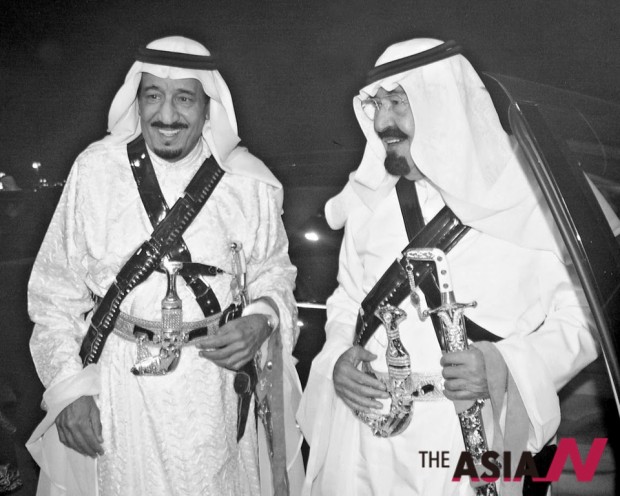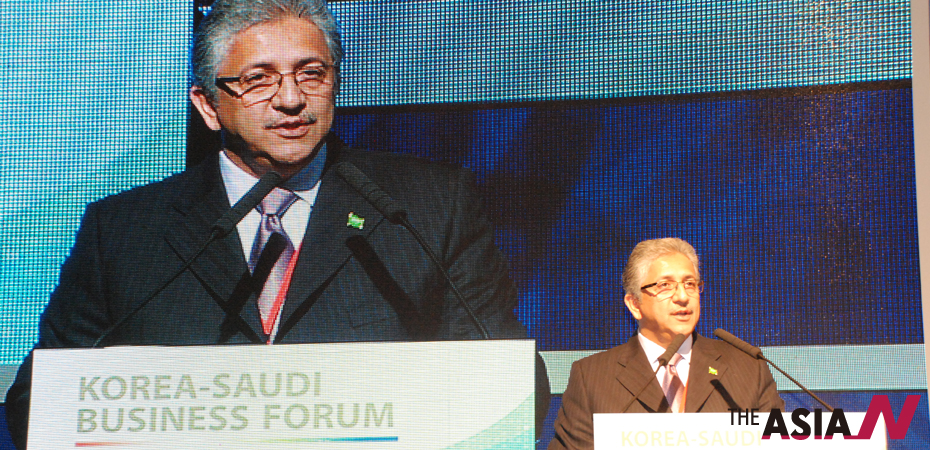
Salman of Saudi Arabia; A New King, an Old Policy

For the last few months, the dramatic fall in oil prices marked the Arab Gulf States with fear, anger and hostile actions.
The unexpected slash of oil prices forced local governments in the region to take hard actions, as the International Monetary Fund estimated that the revenues of Saudi Arabia and its Gulf allies will slip by USD 300 billion this year.
The question raised was, “For how long would the Organization of the Petroleum Exporting Countries (OPEC) members keep steady against such financial strains?”

Maintaing “Correct Policies”
This was the reason for the first appearance by the new King Salman bin Abdul-Aziz Al Saud, 79, to announce the very same day of his predecessor, King Abdullah’s death, Friday January 23, that the Kingdom would surely maintain its strategy of pushing other top exporters to maintain a high level of oil production. King Salman described that it would keep the correct policies that Saudi Arabia has followed since its establishment.
This means that Saudi Arabia will lead the OPEC, which has 12 oil-rich nations, in resisting the cutting of production. So, the sudden initial rise of 2 percent in oil prices, after the announcement of King Abdullah’s death, was lost soon after.
The margin of a few US dollars could be accepted, but a barrel loss was USD 50 to USD 60, to become less than USD 50 each. While old generation men are accustomed to the rise and fall changes since the 1973 war and for 40 years later, the new generations of the Gulf States – especially of the royal Saudi Kingdom family – are not happy about falling oil revenue, as this would certainly affect the high-paying public sector jobs and exorbitant energy subsidies.
Without the acceptance of Saudi Arabia, the other OPEC members will not be able to act separately, as the Kingdom has the ability to substantially vary output to affect markets. Last December, Saudi Arabia produced about 9.5 million barrels per day, its average for the year and about 10 percent of the world total.
Saudi Arabia persuaded Gulf countries that cutting in an oversupplied market would only benefit other producers, which are currently controlled partly by warlords in Libya and Iraq.

Look West in Anger!
The anger was not only found in the Arab Gulf States. When other oil producers, mostly outside OPEC, tried to make huge investments in high-cost endeavors like Canadian heavy oil projects and deep water fields in Brazil, as well as the shale projects that have greatly increased production in the United States, Saudi and Gulf producers were certain that such alternatives would take time for a shakeout to occur among oil producers, which may eventually leave low-cost Middle East producers in a stronger position.
Now, many United States oil executives blame Saudi policies for purposely driving the price of oil down sharply since the summer to damp the United States boom in oil shale drilling, which has nearly doubled domestic oil production in the last six years and virtually eliminated imports from several OPEC producers. They now expect a change coming with the new king, to get the barrel back to above USD 75. But the fact is that there is no major international reason for Saudis to change their old oil policy.
The new king, Salman bin Abdul-Aziz Al Saud, has witnessed and participated in shaping the role of Saudi Arabia as a mediator and peacekeeper, and he is known for overseeing the development of the Saudi capital, Riyadh, during his nearly 50 years as its governor. In 2011, he became the country’s defense minister.
The Other Hard Tasks
The issues spread in front of the new king, other than oil prices that has hurt the country’s economic base, are many. One of them is the civil war in Yemen, Saudi Arabia’s southern neighbor, which has changed rapidly in a catastrophic way.
In the sixties of the last century, Egyptian troops fought against the religious Imam troops, supported then by Saudi Arabia. This was behind the political gap dug between the two states. In the seventies, after the Egyptian president Nasser’s death, the new one, Sadat, reestablished relations with the Kingdom, and the new King Salman used to visit Egypt accompanying the Minister of Defense Prince Sultan to strengthen Saudi-Egyptian ties. He is known for being a perfect speaker of Egyptian colloquial slang! Now the situation in Yemen is the opposite, and the religious riots are supported by the Persians. So the question raised in political back scenes now is: will Egyptian troops help the Saudis against those who fight state authorities in the neighboring country?
There is also the way of supporting regimes that faced revolutions, riots and wars. The jihadists of the Islamic State in Syria and Iraq as well as Saudi Arabia under King Abdullah were seen as key hands behind the tragic scenes of Syria and Iraq, which are unlikely to be solved in the recent future.
Saudi Arabia under King Abdullah led the Gulf troops into Bahrain to keep the small kingdom in Arab hands against Iranian interference. It also supported the military Egyptian president against his opponent Muslim Brotherhood man to keep peace in Egypt. Furthermore, it offered refuge for the flying away Tunisian president Ben Ali.
Internally, King Salman was in charge of such difficulties when King Abdullah fell ill. However, the new king was not in his best health either; he has had at least one stroke and lost some movement in one of his arms.
In other matters, he has been seen to slow down the modest reforms put in place by his brother, King Abdullah, which included encouraging women to enter the work force, a move criticized by some parts of the conservative clerical establishment. The new king is very conservative, but he will not go against the reforms that King Abdullah initiated.





